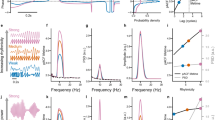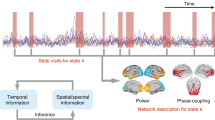Astract.
The present essay concisely analyses the contemporary neurobiological debate concerning the hypothesis of the “temporal correlation” advanced to solve the perceptual problem of linking different features in a unitary object or visual scene. Although fascinating and grounded on simulations and brain models, in addition to important electrophysiological findings on the sensory systems, this hypothesis is regarded as not conclusive, and it still excites numerous critical observations from different approaches. Nevertheless, it has contributed to an innovative use of the idea of cortical oscillations, as regards its usual employment in reference to the electrical activity of the brain. It also opens a new perspective in the assumption of the temporal pattern to read the neural code.
Similar content being viewed by others
Author information
Authors and Affiliations
Corresponding author
Rights and permissions
About this article
Cite this article
Pareti, G., De Palma, A. Does the brain oscillate? The dispute on neuronal synchronization. Neurol Sci 25, 41–47 (2004). https://doi.org/10.1007/s10072-004-0235-2
Received:
Accepted:
Issue Date:
DOI: https://doi.org/10.1007/s10072-004-0235-2




